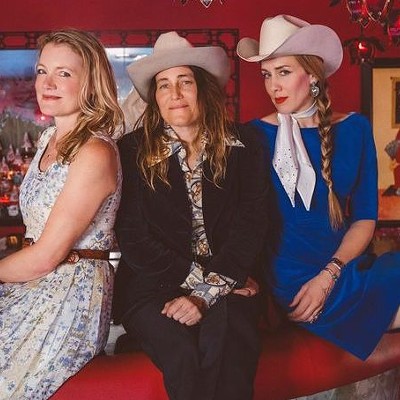Support Us
Houston's independent source of
local news and culture
account
- Welcome,
Insider - Login
- My Account
- My Newsletters
- Contribute
- Contact Us
- Sign out
New Bio Finally Gives Rock and Roll Architect Sam Phillips His Due
Bob Ruggiero December 29, 2015 4:00AM
[
{
"name": "Related Stories / Support Us Combo",
"component": "11591218",
"insertPoint": "4",
"requiredCountToDisplay": "4"
},{
"name": "Air - Billboard - Inline Content",
"component": "11591214",
"insertPoint": "2/3",
"requiredCountToDisplay": "7"
},{
"name": "R1 - Beta - Mobile Only",
"component": "12287027",
"insertPoint": "8",
"requiredCountToDisplay": "8"
},{
"name": "Air - MediumRectangle - Inline Content - Mobile Display Size 2",
"component": "11591215",
"insertPoint": "12",
"requiredCountToDisplay": "12"
},{
"name": "Air - MediumRectangle - Inline Content - Mobile Display Size 2",
"component": "11591215",
"insertPoint": "4th",
"startingPoint": "16",
"requiredCountToDisplay": "12"
}
,{
"name": "RevContent - In Article",
"component": "12527128",
"insertPoint": "3/5",
"requiredCountToDisplay": "5"
}
]
Sam Phillips: The Man Who Invented Rock ‘N’ Roll
By Peter Guralnick
Little, Brown and Company, 784 pp., $32
Well, as Guralnick clarifies shortly into his foreword, if Sam Phillips didn’t exactly “invent” rock and roll, he at least discovered it. Or so it seems from the endless array of names — mostly poor white Southerners — who would seemingly wander into his Sun Studio (initially Memphis Recording Service) at 706 Union Ave. to put their voices and instruments on wax.
Just look at this lineup of performers who Phillips twiddled knobs and offered direction for from behind the glass: early efforts by B.B. King, Howlin’ Wolf, and Ike Turner. Prime early movers Elvis Presley, Jerry Lee Lewis, Carl Perkins, and Johnny Cash. Later came icons like Roy Orbison and Charlie Rich, along with cult favorites Sonny Burgess, Billy Lee Riley, and a guy named Harmonica Frank.
In his first book in a decade, Guralnick – one of music journalism’s finest scribes and author of definitive efforts on Elvis and Sam Cooke — brings to full and robust literary life one of music’s greatest mavericks. It shows much more of the man whose set-in-stone reputation to the general public is just “the man who first recorded Elvis.” In fact, Sam Phillips is one of the architects of rock and roll in his own right — not bad for a guy who didn’t write songs, perform onstage, or play an instrument. His personal life was as triumphant, messy, and Shakespearian as many of those he recorded, though.
Guralnick recently spoke with the Houston Press about the book, his personal relationship with his subject, and how Houston plays into the story. And while Q&As bespeak sometimes of lazy journalism, Guralnick’s words and thoughts come across best undistilled.
Houston Press: You knew Sam and his family and worked with him on and off for nearly a quarter century before he died in 2003. Even though Sam claimed he was writing his own book, was the underlying assumption that the job would in the end always be yours?
Peter Guralnick: Not exactly. I didn’t conceive of writing a biography on Sam when I met him in 1979. I knew I didn’t want to write the book with Sam, because it would be a frictional thing. But I agreed to do it [later] because I cared so much about him. At the end he was so insistent, and was deeply disturbed I was writing a book about another Sam [Cooke] instead of him!
It was in writing the Elvis books that I came to know him more and more and became friendlier. But he said to me on more than one occasion “Knox [Phillips’ son] loved you from when he first met you, but I did not!” Sam kept his distance. But I’ve never been so inspired by a first meeting as I was with Sam. He always talked about doing his book, but then it became how I had to do it.
The Sam Phillips you bring to life seems like an almost irresistible force of nature. You write about him usually being in “teacher and preacher” mode.
I describe him in our first meeting as having the emphatic look of an Old Testament preacher. But I never felt that he was crashing down around my head. He really wanted to teach you things.
He had more general knowledge and commitment to the acquisition of knowledge of just any sort. Like how to take down a tree - and then he would tell a crew who came to his house how to do it. Or talking to the yard man about plants and how they should be taken care of. The preaching was more for the public, and I was determined to write about him in all his facets. There was the performance, and then there was the motivation.
One of the most surprising things you write about was how Sam felt his greatest discovery — and the artist he regretting losing most — was Howlin’ Wolf and not, say, Elvis or Jerry Lee.
I think he saw in Wolf’s music the most profound articulation of human emotion or experience that he ever encountered. Wolf encapsulated everything that Sam had built a studio and gone into recording for. This was a man about whose music Sam said “this is where the soul of a man never dies.” How can you beat that? You can’t get any better.
The only other person he put in Wolf’s category was Charlie Rich. Can you imagine any two more different [musicians]? They wore their nerve endings on their outside. But he had a superlative for every one of his artists, he loved them all. So Elvis was the most charismatic, Jerry Lee was the most musically talented, and Harmonica Frank was a beautiful hobo! (laughs). But Wolf and Charlie Rich were the most profound to him.
It’s almost like reading a storybook fantasy that all these musicians could just walk into Sun off the street – often unannounced – and make music that we are still listening to and talking about more than 60 years later.
I mean, Ike Turner came to Memphis with the Kings of Rhythm and passed the studio three times because he thought it looked like a barber shop! This is a storefront in the most modest sense and basically a one-man operation. [Office manager] Marion Kiesker was an invaluable help to Sam, but Sam was the whole show. And until he hired Jack Clement, it was all just the two of them. And to make such cataclysmic music in that tiny place…
One consistent them in Sam’s personal life was his constant need to be loved. And not many men could have his wife exist with various girlfriends and lovers almost copacetically. Why was he so desperate to be loved by women?
This is question we could all ask of ourselves! (laughs). I mean, think about Elvis and Sam Cooke, how solitary and lonely they were. Sam Cooke was the most warm and charismatic communicator on a mass level you can encounter, and yet he was alone. It’s common of the artistic temperament to feel things so deeply. I wanted to capture Sam Phillips in all his temperaments and dimensions. He was desperate for companionship and to be told he was loved.
Finally, Houston pops up several times in the book. It’s where Sam travels and local legendary DJ Paul Berlin refused to play the initial records by Elvis; it’s where he tangled with Don Robey of Duke/Peacock in court about records and artist contracts. And much later, where he would take his son Knox for cancer treatments at M.D. Anderson.
I had heard same talk a great deal about taking this trip to Houston and then trying to get to Dallas, but he got caught in a dust storm and turned back and spent the night in the lobby of the Rice Hotel. That was the first trip he took outside of Memphis to try and sell Elvis’ records to the world and was turned down in Shreveport and Houston and finally in Dallas got them accepted.
He had known Paul Berlin as this kid growing up in Memphis when he was doing some kind of children’s theater. And Berlin said he couldn’t play Elvis because he was playing just these straight pop songs. A lot of white DJs said it was too black and it couldn’t be played after the sun came up! And Don Robey was a thorn in Sam’s side. Well…a lot of people’s sides! (laughs). But Don was tough, and he was smart.
And M.D. Anderson saved Knox’s life when he had an extremely rare form of cancer. Sam threw himself into learning about cancer as well, reading medical journals, and drove Knox to leave these Memphis, these Nashville doctors behind and go to Houston.
Sam was closely connected to the doctors and became an evangelist for M.D. Anderson and sent people there, including John Prine. John was going to go somewhere else to get treated, and Sam got on the phone with him and said “if you don’t get on a plane right now, I’m going to kick your ass all the way to Houston!”
KEEP THE HOUSTON PRESS FREE...
Since we started the Houston Press, it has been defined as the free, independent voice of Houston, and we'd like to keep it that way. With local media under siege, it's more important than ever for us to rally support behind funding our local journalism. You can help by participating in our "I Support" program, allowing us to keep offering readers access to our incisive coverage of local news, food and culture with no paywalls.
Bob Ruggiero has been writing about music, books, visual arts and entertainment for the Houston Press since 1997, with an emphasis on classic rock. He used to have an incredible and luxurious mullet in college as well. He is the author of the band biography Slippin’ Out of Darkness: The Story of WAR.
Contact:
Bob Ruggiero
Trending Music
- Houston Concert Watch 4/24: Rolling Stones, Bad Bunny and More
- How Much Longer Can Classic Rock Rule the Roost?
- Top 10 Butt-Rock Bands of All Time
-
Sponsored Content From: [%sponsoredBy%]
[%title%]

Don't Miss Out
SIGN UP for the latest
Music
news, free stuff and more!
Become a member to support the independent voice of Houston
and help keep the future of the Houston Press FREE
Use of this website constitutes acceptance of our
terms of use,
our cookies policy, and our
privacy policy
The Houston Press may earn a portion of sales from products & services purchased through links on our site from our
affiliate partners.
©2024
Houston Press, LP. All rights reserved.





